English at Lenham Primary
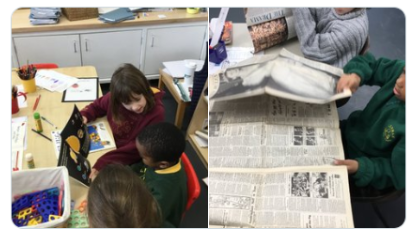
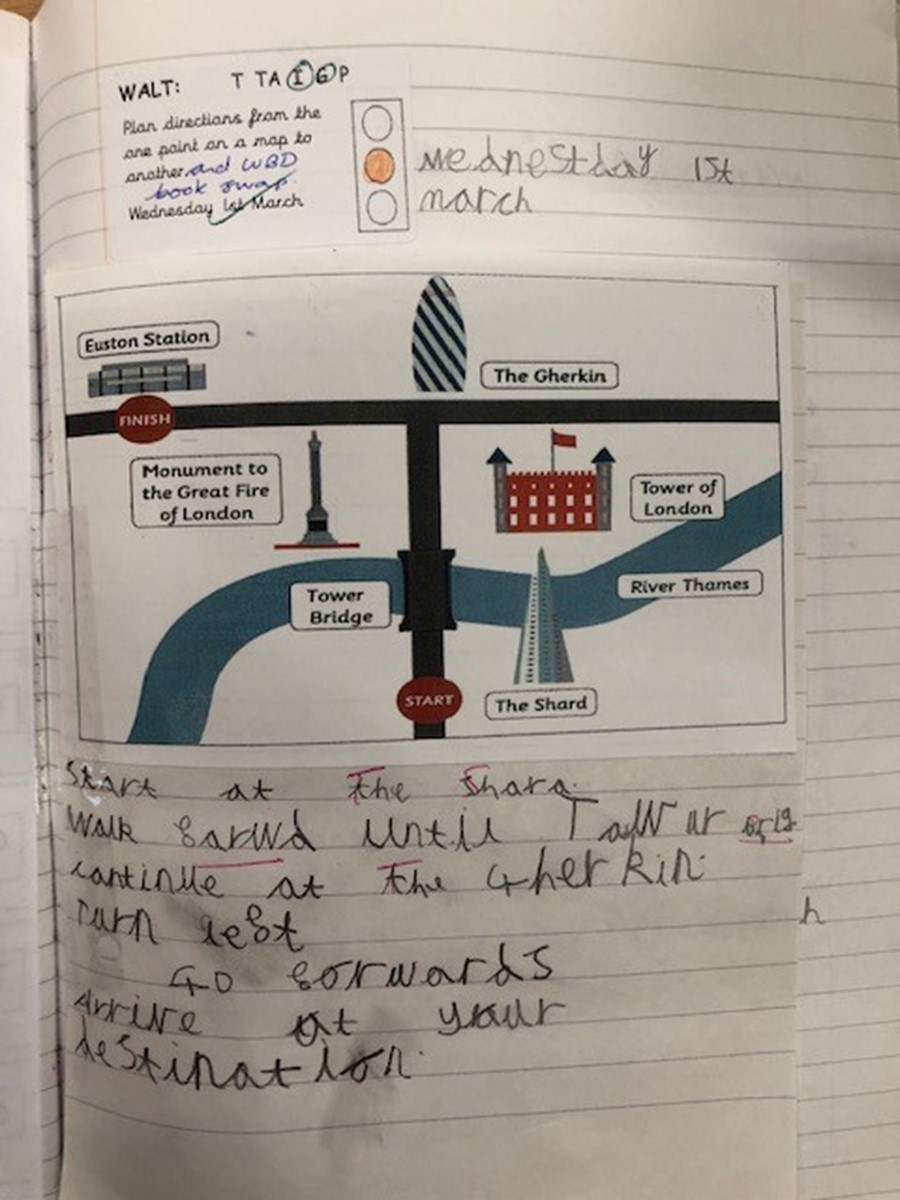
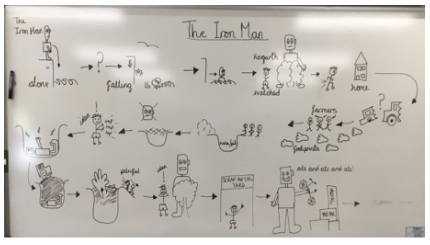
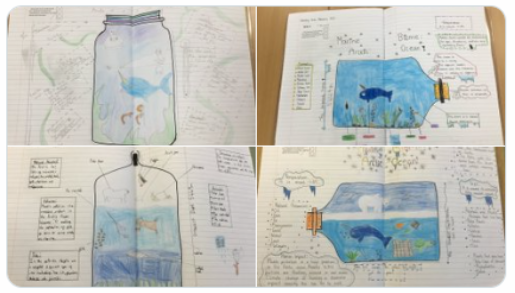
Aims
English makes a major contribution to the development of a child's language which, in turn,
contributes to the child's understanding of his or her world, the world of others and the world of
imagination. Since English is integral to the learning process throughout the curriculum, it follows that
whenever anything is being taught or learned, there is potential for developing a child's language. At
Lenham Primary School, we ensure that English is not only taught as a discrete subject but that it is
embedded throughout the curriculum. Through using high-quality texts, immersing children in
vocabulary rich learning environments and ensuring curriculum expectations and the progression of
skills are met, children will be exposed to a language rich, creative and a continuous English
curriculum which will not only enable them to become primary literate but will also develop a love of
reading, creative writing and purposeful speaking and listening.
The overarching aim for English is to promote high standards of language and literacy, by equipping
pupils with a strong command of the spoken and written word, and to develop their love of literature
through widespread reading for enjoyment.
Objectives
The national curriculum for English aims to ensure that all
pupils:
• read easily, fluently and with good understanding;
• develop the habit of reading widely and often, for both pleasure and information;
• acquire a wide vocabulary, an understanding of grammar and knowledge of linguistic
conventions for reading, writing and spoken language;
• appreciate our rich and varied literary heritage;
• write clearly, accurately and coherently, adapting their language and style in and for a range
of contexts, purposes and audiences;
• use discussion in order to learn; they should be able to elaborate and explain clearly their
understanding and ideas;
• are competent in the arts of speaking and listening, making formal presentations,
demonstrating to others and participating in debate.
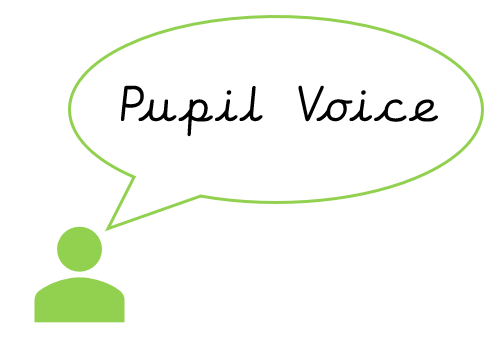
What have you learnt in English this year?
I find different punctuation really interesting.
I love using my brain to think of good ideas and then checking the Working Wall to help me.
I read books and then I can use the phrases in the books to help me in my writing.
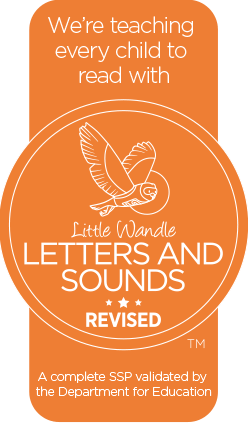
Every day children have a 20 minutes phonic lesson. We use Little Wandle Letters and Sounds to teach phonics. The children then have a reading session everyday with decodable books linked to the sounds they have been learning.
Key words:
Phoneme- The smallest unit of sound that can be identified in words. We sometimes simply call this a ‘sound’, although it is helpful for children to use the term ‘phoneme’ from the beginning (Note: We do not usually notice discrete sounds in words. We deliberately separate them out so that children can learn how our writing–reading system works. Children are first helped to identify the separate sounds in words through oral blending and segmenting, and this is reinforced as they begin to work through Little Wandle.
Grapheme- A letter or group of letters used to represent a particular phoneme when writing. With children, we sometimes call this ‘a sound written down’, although, as with ‘phoneme’, it is helpful for children to learn to use the correct term from the beginning. The way graphemes are used to represent phonemes in our written language is known as the ‘alphabetic code’.
Diagraph- A grapheme using two letters to represent one phoneme. With children, we frequently reinforce it with the mantra ‘two letters, one sound’. At the appropriate stage, it is useful for children to learn to use the term and to understand what it means.
By the end of Year 1 children will have completed all the phases (5 phrases in total) and will be ready for the phonics screen test. Below are some resources to help you support your child.
The phonics screening test is a short assessment that children take near the end of Year 1. The test consists of 40 words (real and made up words) that your child will be asked to read one-to-one with a teacher.
It is a compulsory test that ALL children have to sit.
The pass mark is around 32/40 but may go up/down depending on national scores. If your child does not pass the screening, they can retake the test in Year 2.
Accelerated Reader
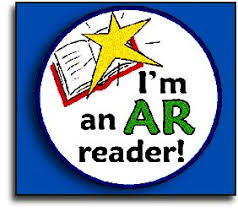
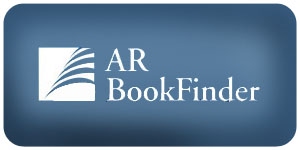
Click here to go to AR BookFinder
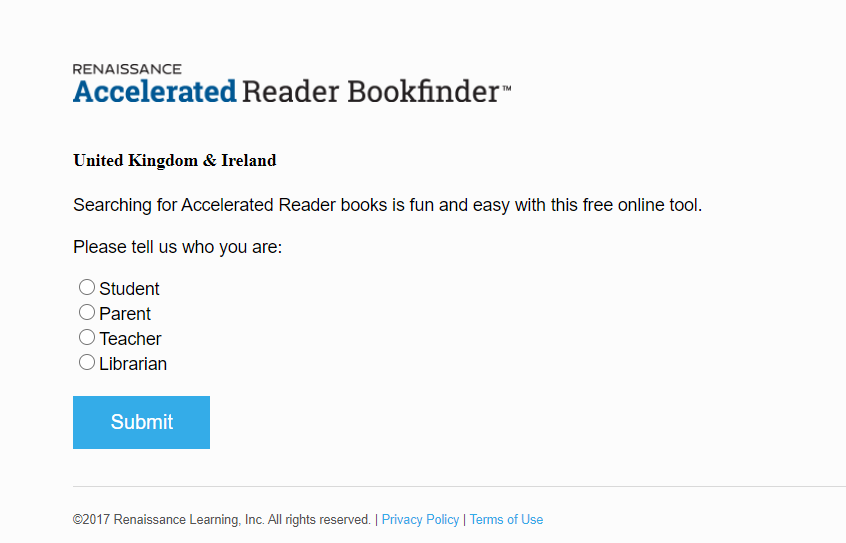
If you follow the link above to the book finder you will see the following. Please select parent.
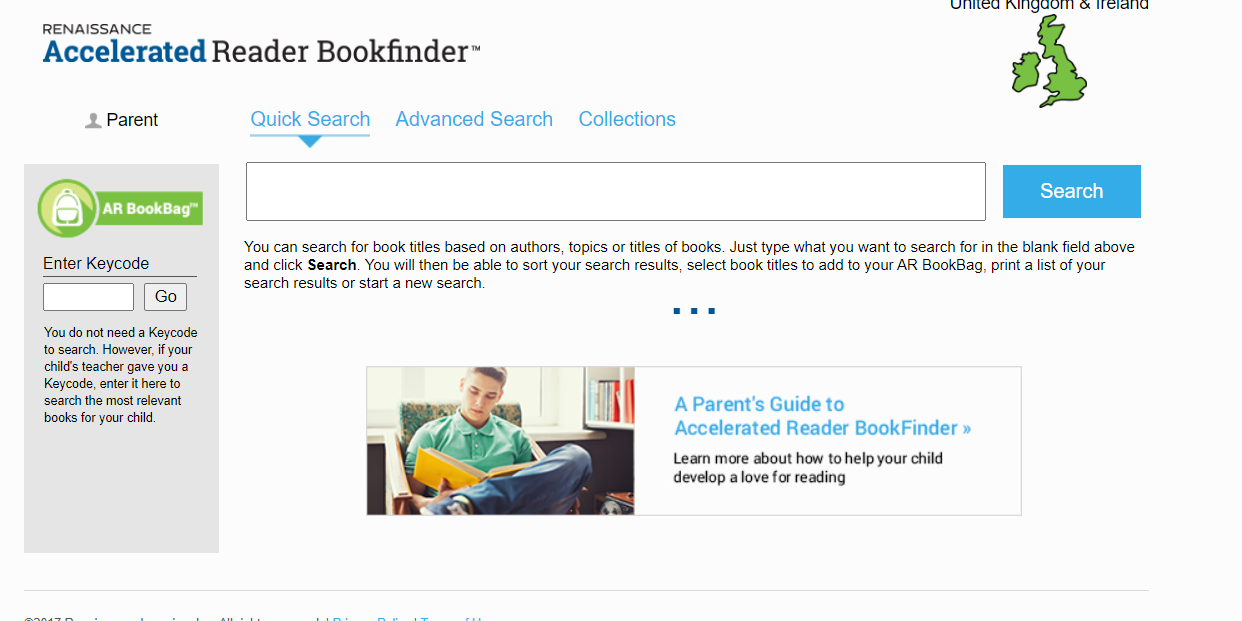
If you wish to donate a book to the school, use quick search and type the title in. This will tell you whether the book is an AR book.
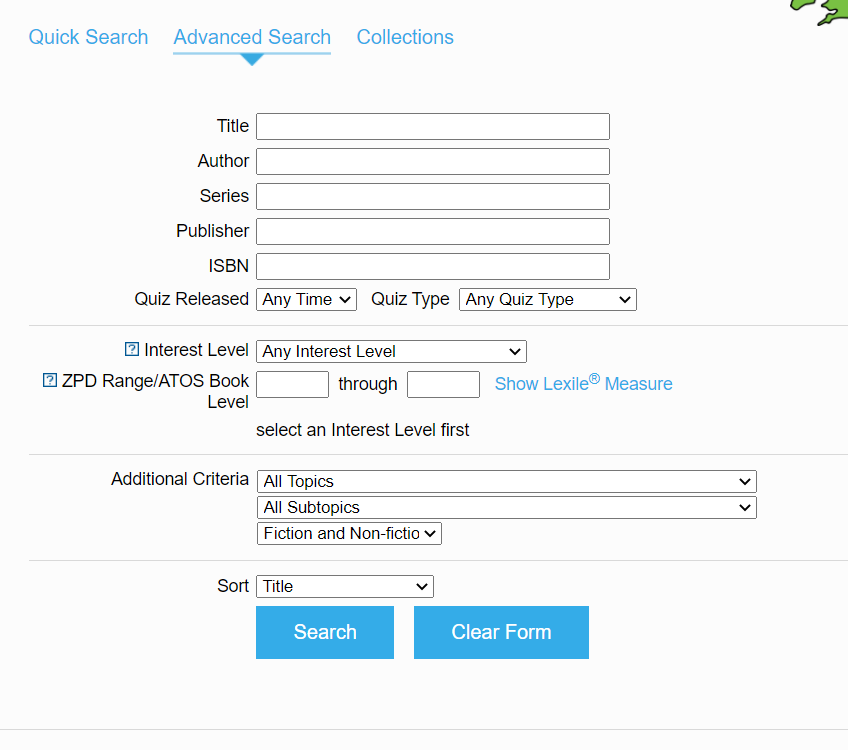
If you want to find book in your child's ZPD range. Follow the link above and click parent, then go to advance search. Put in interest level and ZPD range and click search.
At Lenham Primary School, we strive to ensure that our pupils appreciate how valuable and rewarding reading can be and as such we have invested in the Accelerated Reader programme for Years 2 to 6. Children in Year 1 will join the programme once they have acquired a secure understanding of phonics and can apply this understanding to their reading, and so in the meantime will continue to be given phonics reading books to share at home.
How Accelerated Reader Works
Accelerated Reader is a computerised programme that has not only been specifically designed to improve children’s reading ability and continue to raise their reading age, but also to encourage and nurture a love of reading that will continue into adulthood.
The programme works by identifying a child’s ZPD (Zone of Proximal Development) which essentially is a selection of books that will not only match their ability, but will also challenge them and develop their vocabulary. In order to determine their ZPD, each child in Years 2 to 6 will sit a short online comprehension test (called a Star Test). Using the outcomes of these tests, the children will then be directed to choose books from the school library that fall within this range and when they have finished reading a book, they will take a short, electronic quiz that assesses their understanding of what they have read. This enables the class teacher to have a meaningful discussion about your child’s reading: what they have learnt and how we can help them to develop. It also enables class teachers to closely monitor individual reading progress and ensure the children are selecting books that are challenging enough to meet their individual needs.
The reading books in our school library have now been categorised into the following Accelerated Reader levels:
Book Level (BL)
The Book Level ranges between 0.2 and 13.5. This has been calculated using two main factors:
- average sentence length
- vocabulary difficulty
Interest Level
The Interest Level relates to the content and appropriateness of the text.
LY = Lower Years, approx age 5-8 (LY books stored outside Year 1 have been categorised as ILY: Infant Lower Years)
MY = Middle Years, approx age 9-13
UY = Upper Years, approx age 14+
Two coloured stickers have been used on the spine of each book: one to denote the interest level and another for the book level. An over view of this can be found on the attached ‘Accelerated Reader Book Guide’. A white sticker can also be found on the reverse of each book indicating the quiz number, author, book and interest level and the points available. The points are based on the word count of the book and are awarded to each child according to the quiz success.
The Accelerated Reader programme caters for all reading ages of primary school aged children from Key Stage 1 and runs right through to secondary school, and as such is perfect for all of our children, including the most proficient of readers who on our previous reading scheme may have been classed as a ‘Free Reader’. At the beginning of each new academic year, once class teachers feel that the children are settled and ready, those in Years 2 to Year 6 will sit the Star Reading test and then select their reading book to continue their Accelerated Reader journey. Reading books can be taken home and returned once finished. Star Reading tests will then be used at set times throughout the year to update their ZPD and reading range.
Class Reading Sessions
A dedicated 15 minute daily independent reading session has been built into the school timetable to provide time for reading (and the completion of quizzes). Within these sessions, children also work in small groups with the class teacher to develop fluency, prosody and vocabulary acquisition. Teachers also use a weekly whole class reading session and supplementary small group interventions sessions to focus on developing vocabulary and a range of comprehension skills including the use of inference to answer questions and ascertain meaning beyond the literal.
Home Reading
Research shows that the children who make the most progress on the Accelerated Reader programme read for 30 minutes everyday and, therefore, we would like the children to read for at least 15 minutes at home each day. Home reading can be recorded in your child's reading record book.
Writing
Writing in EYFS
The children are given a range of opportunities to write for different purposes and audiences in child and teacher initiated activities in both the indoor and outdoor environment. They are encouraged to have a go, using the sounds and word building skills learned in their daily phonic sessions.
Writing throughout the school
At Lenham Primary School we use a range of stimuli including those taken from The Literacy Shed and The Write Stuff to teach writing in range of genres within narrative, non-narrative and poetry. We maintain through each key stage and year group, that we want our children to develop their vocabulary understanding, write in a range of different genres and continuously develop their spelling, grammar and punctuation skills.
The Writing Rainbow and its lenses, taken from The Write Stuff, are used to support our teaching and learning of English to ensure clarity to the mechanics of writing. This approach allows children to apply basic skills, vocabulary and grammar knowledge to write effective sentences, which are full of impact and keep the reader interested.
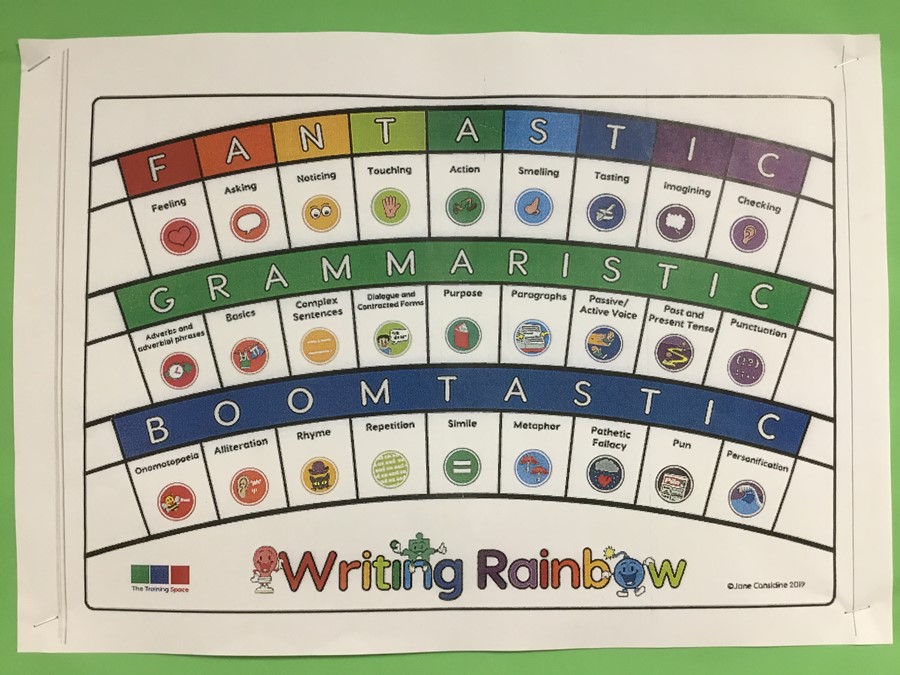
A collaborative approach to the exploration and selection of vocabulary through ‘thesaurus thinking’ is used to support modelled and shared writing which in turn supports pupils to showcase what they can do within particular writing parameters known as The Three Zones of Writing taken from The Write Stuff approach. These are the FANTASTICs, GRAMMARISTICs and the BOOMTASTICs. The Three Zones of Writing are components we use to support pupils in becoming great writers.
Children see our teacher's model writing and reading on a daily basis within a range of lessons. They include links between the written and spoken language, as well as phonics, spelling and handwriting development.
Spelling
Spelling Through Phonics
In Year 2 and throughout Key Stage 2, spelling is taught based on Diane McGuinness’ research which recognises that spelling alternatives for each of the 44 phonemes can be mastered through controlled exposure and varied repetition, and must be sequenced from simple to complex, and common to rare.
Each week, classes focus on a specific phoneme: this begins with a teacher-guided session to introduce the phoneme and its corresponding graphemes. This learning is then revisited and consolidated through daily work throughout the week, involving independent practice, guided and paired work. End of week informal spelling dictations are used to assess the children’s understanding.

Weekly spelling lists can be accessed at school and at home via Spelling Shed.
https://www.edshed.com/en-gb/login?return_url=https%3A%2F%2Fwww.spellingshed.com%2Fen-gb%2F
Grammar Workshop